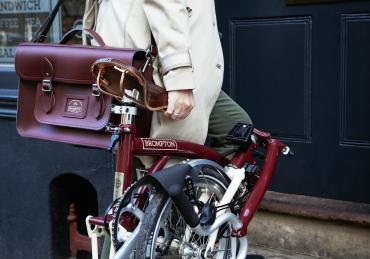We need to build cities with social justice at their heart.
"The ability to move is absolutely critical. If we think about a future in which movement and mobility is determined by economic productivity, efficiency and connectivity, then we have left out a huge part of the community and population.
My research looks at urban futures. I’m asking questions about the kind of city we want to create for ourselves. Cities built by technology, designed to support the most economically active inhabitants? Or a city that has inherent social justice cause built into it, for which technology acts as an enabler? It’s our belief that cities, social justice, mobility and infrastructure are all connected.
Being told to move in a particular way, or being held back due to the infrastructure makes for a city that is not socially just. It’s not catering to the lifestyle of everybody, it just caters to those people who are economically productive. Even in London if you look at tube maps, everything comes to the city center and everything goes out. But what if you have to drop the kids off at school from home, you have to have a car. Even if you’re elderly or not very mobile, it creates all sort of problems.
We need to think about physical infrastructure in a way that reflects the lives, lifestyles and livelihoods of some of the most vulnerable and marginalized people in society. We’re looking at how this shapes what is a safe or unsafe place, and how this interacts with the physical infrastructure of trains, bus routes, walking areas, lighting and that kind of thing and how these all come together.
In London, there’s talk of piloting a safety app which gives scores to particular places. You’re informed in advance as to how safe certain areas are, so you can pre-empt whether a place is bad or not somewhere to go alone. But we’re finding that there are particular blind spots and hot spots on the way these are mapped. The hot spots are the very wealthy areas, the blind spots are local neighborhoods and less-frequented areas.
There is a lot of focus currently on creating a smart city – public wifi is to be available in certain areas across London. But what happens when you step outside of those areas and what if you don’t have a smartphone to access the wifi in the first place – a problem for the elderly for example. Infrastructure should be there to support everyone – only then are we living in a smart and truly connected city."
As head of the Urban Futures Research Domain at King’s College, London, Dr Ayona Datta investigates alternative visions for the cities of tomorrow.
Find out more about our Campaign for Movement here.

















